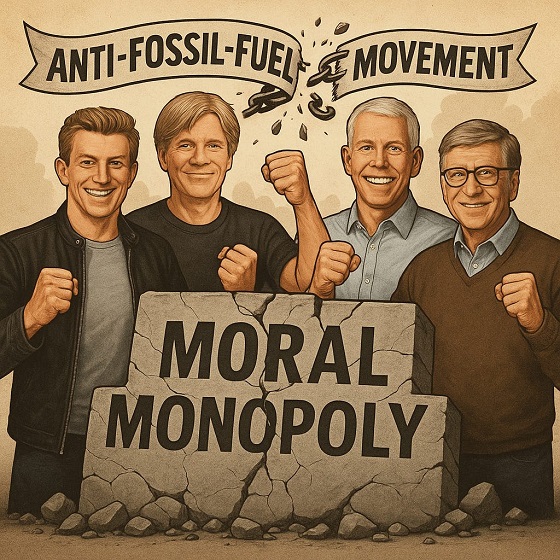Uncategorized
Interpol president reported missing during trip to China

PARIS — The Chinese president of Interpol has been reported missing after he
Meng Hongwei’s wife reported Friday that she had not heard from her 64-year-old husband since he left Lyon, France, where Interpol is based, said the official, who spoke on condition of anonymity to provide details of an ongoing investigation.
The French official said Meng did arrive in China. There was no further word on Meng’s schedule in China or what prompted his wife to wait until now to report his absence.
Meng, who has been president of Interpol for two years, still holds the post of vice minister for public security, according to the ministry’s
In a statement, Interpol said it was aware of reports about Meng’s disappearance and added “this is a matter for the relevant authorities in both France and China.” The statement noted that Interpol’s secretary general, and not its president, is responsible for the international police agency’s operations.
News of the investigation into Meng’s disappearance came during a weeklong public holiday in China. In Beijing, the foreign and public security ministries did not immediately respond to calls and faxed requests for comment Friday.
Meng was elected president of Interpol in November 2016. His term runs until 2020.
He has held a variety of positions within China’s security establishment, including as a vice minister of public security — the national police force — since 2004. In the meantime, he served as head and deputy head of branches of the coast guard, all while holding positions at Interpol.
Meng’s duties in China would have put him in close proximity to former leaders, some of whom had fallen afoul of President Xi Jinping’s sweeping crackdown on corruption. In particular, Meng likely dealt extensively with former security chief Zhou Yongkang, who is now serving a life sentence for corruption.
Xi has also placed a premium on obtaining the return of officials and businesspeople accused of fraud and corruption from abroad, making Meng’s position all the more sensitive.
When Meng was elected in 2016 as Interpol president, rights groups expressed concern that he would pursue an agenda of politicized policing that targeted Xi’s opponents.
___
This version has been corrected to show that the Interpol president is China’s vice minister for public security, not a former senior security official.
___
Bodeen reported from Beijing.
Lori Hinnant And Christopher Bodeen, The Associated Press
Uncategorized
Trump Admin Establishing Council To Make Buildings Beautiful Again


From the Daily Caller News Foundation
By Jason Hopkins
The Trump administration is creating a first-of-its-kind task force aimed at ushering in a new “Golden Age” of beautiful infrastructure across the U.S.
The Department of Transportation (DOT) will announce the establishment of the Beautifying Transportation Infrastructure Council (BTIC) on Thursday, the Daily Caller News Foundation exclusively learned. The BTIC seeks to advise Transportation Secretary Sean Duffy on design and policy ideas for key infrastructure projects, including highways, bridges and transit hubs.
“What happened to our country’s proud tradition of building great, big, beautiful things?” Duffy said in a statement shared with the DCNF. “It’s time the design for America’s latest infrastructure projects reflects our nation’s strength, pride, and promise.”
“We’re engaging the best and brightest minds in architectural design and engineering to make beautiful structures that move you and bring about a new Golden Age of Transportation,” Duffy continued.
Mini scoop – here is the DOT’s rollout of its Beautifying Transportation Infrastructure Council, which will be tasked with making our buildings beautiful again. pic.twitter.com/
9iV2xSxdJM — Jason Hopkins (@jasonhopkinsdc) October 23, 2025
The DOT is encouraging nominations of the country’s best architects, urban planners, artists and others to serve on the council, according to the department. While ensuring that efficiency and safety remain a top priority, the BTIC will provide guidance on projects that “enhance” public areas and develop aesthetic performance metrics.
The new council aligns with an executive order signed by President Donald Trump in August 2025 regarding infrastructure. The “Making Federal Architecture Beautiful Again” order calls for federal public buildings in the country to “respect regional architectural heritage” and aims to prevent federal construction projects from using modernist and brutalist architecture styles, instead returning to a classical style.
“The Founders, in line with great societies before them, attached great importance to Federal civic architecture,” Trump’s order stated. “They wanted America’s public buildings to inspire the American people and encourage civic virtue.”
“President George Washington and Secretary of State Thomas Jefferson consciously modeled the most important buildings in Washington, D.C., on the classical architecture of ancient Athens and Rome,” the order continued. “Because of their proven ability to meet these requirements, classical and traditional architecture are preferred modes of architectural design.”
The DOT invested millions in major infrastructure projects since Trump’s return to the White House. Duffy announced in August a $43 million transformation initiative of the New York Penn Station in New York City and in September unveiledmajor progress in the rehabilitation and modernization of Washington Union Station in Washington, D.C.
The BTIC will comprise up to 11 members who will serve two-year terms, with the chance to be reappointed, according to the DOT. The task force will meet biannually. The deadline for nominations will end Nov. 21.
Uncategorized
New report warns WHO health rules erode Canada’s democracy and Charter rights

The Justice Centre for Constitutional Freedoms has released a new report titled Canada’s Surrender of Sovereignty: New WHO health regulations undermine Canadian democracy and Charter freedoms. Authored by Nigel Hannaford, a veteran journalist and researcher, the report warns that Canada’s acceptance of the World Health Organization’s (WHO) revised International Health Regulations (IHR) represents a serious erosion of national independence and democratic accountability.
The IHR amendments, which took effect on September 19, 2025, authorize the WHO Director-General to declare global “health emergencies” that could require Canada to follow directives from bureaucrats in Geneva, bypassing the House of Commons and the will of Canadian voters.
The WHO regards these regulations as “binding,” despite having no ability or legal authority to impose such regulations. Even so, Canada is opting to accept the regulations as binding.
By accepting the WHO’s revised IHR, the report explains, Canada has relinquished its own control over future health crises and instead has agreed to let the WHO determine when a “pandemic emergency” exists and what Canada must do to respond to it, after which Canada must report back to the WHO.
In fact, under these International Health Regulations, the WHO could demand countries like Canada impose stringent freedom-violating health policies, such as lockdowns, vaccine mandates, or travel restrictions without debate, evidence review, or public accountability, the report explains.
Once the WHO declares a “Pandemic Emergency,” member states are obligated to implement such emergency measures “without delay” for a minimum of three months.
Importantly, following these WHO directives would undermine government accountability as politicians may hide behind international “commitments” to justify their actions as “simply following international rules,” the report warns.
Canada should instead withdraw from the revised IHR, following the example of countries like Germany, Austria, Italy, Czech Republic, and the United States. The report recommends continued international cooperation without surrendering control over domestic health policies.
Constitutional lawyer Allison Pejovic said, “[b]y treating WHO edicts as binding, the federal government has effectively placed Canadian sovereignty on loan to an unelected international body.”
“Such directives, if enforced, would likely violate Canadians’ Charter rights and freedoms,” she added.
Mr. Hannaford agreed, saying, “Canada’s health policies must be made in Canada. No free and democratic nation should outsource its emergency powers to unelected bureaucrats in Geneva.”
The Justice Centre urges Canadians to contact their Members of Parliament and demand they support withdrawing from the revised IHR to restore Canadian sovereignty and reject blind compliance with WHO directives.
-

 Alberta2 days ago
Alberta2 days agoAlberta government’s plan will improve access to MRIs and CT scans
-

 Business2 days ago
Business2 days agoCarney government’s first budget should signal end to crippling ‘climate’ policies
-

 Economy2 days ago
Economy2 days agoWelcome to the Energy Humanist Club! Bill Gates breaks the moral monopoly against fossil fuels
-

 Business2 days ago
Business2 days agoBudget 2025 continues to balloon spending and debt
-

 Censorship Industrial Complex1 day ago
Censorship Industrial Complex1 day agoHow the UK and Canada Are Leading the West’s Descent into Digital Authoritarianism
-

 Business1 day ago
Business1 day agoCapital Flight Signals No Confidence In Carney’s Agenda
-

 Business2 days ago
Business2 days agoNo Jobs Clause: Liberals Under Fire Over Stellantis Deal in Fiery Committee Showdown
-

 Agriculture2 days ago
Agriculture2 days agoDanish Cows Collapsing Under Mandatory Methane-Reducing Additive










